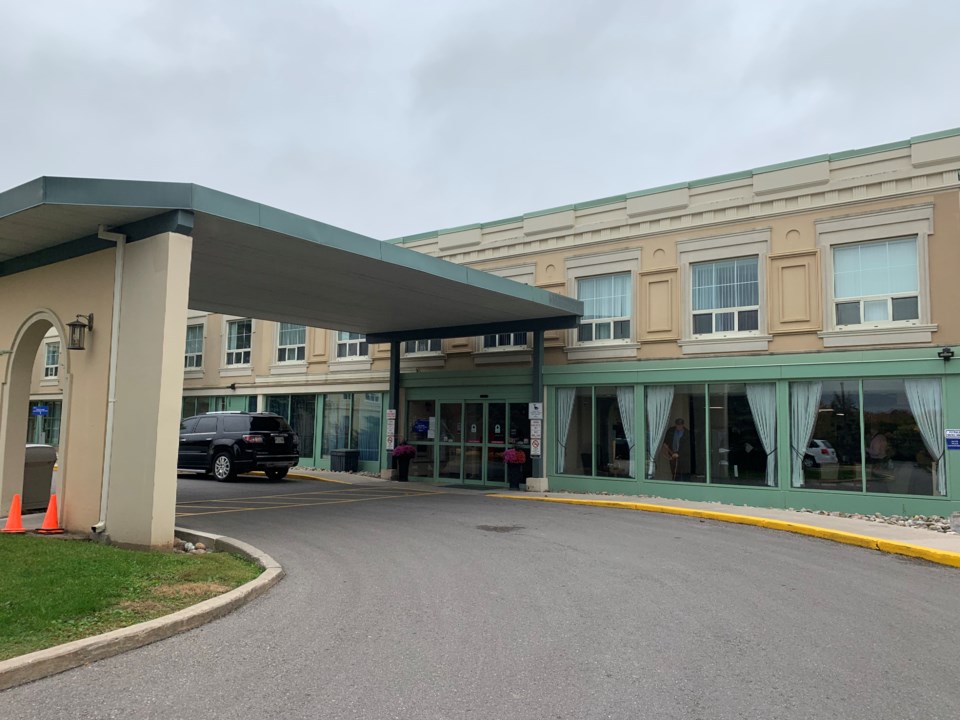York Region is pointing to Newmarket Health Centre's experiences during the pandemic as an example of why the province needs to implement immediate reforms of the long-term care system, including how it is funded and staffed.
The region is submitting recommendations to the Ontario Long-Term Care COVID-19 Commission regarding the crisis facing local long-term care (LTC) homes during the pandemic. The submission cites the challenges at the two long-term care centres operated by the Regional Municipality of York: Newmarket Health Centre and Maple Health Centre in Vaughan.
The recommendations call for more funding to address issues like staffing, training, alternative options to long-term care centres, and relieving the burden on municipalities for a health-care issue that would normally be a provincial responsibility.
The submission was met with the approval of Newmarket resident Lynda Newman, who is the chair of Action Not Words, a grassroots advocacy group for LTC issues that made it own submission to the commission last November.
"We have been pushed into action because of the tragic circumstances of the pandemic, and those circumstances remain today. The pandemic needs to be addressed with an immediate response to what is going on in LTC. This brought into focus that there is a long-standing set of issues when it comes to the LTC system that have made seniors so vulnerable last year and into this year," said Newman.
"I think this submission looks great, I love the specificity of the report. Our request to you is that York Region becomes a strong voice for the long-term reform of the system. It won't happen today or tomorrow, but it has to happen over time.
"Now is the time, because of the tragic circumstances, the opportunity to change the system is now."
One of York Region's main recommendations is more funding for outbreak management and testing.
Lisa Gonsalves, York Region general manager of community and health services, told regional councillors today that the region's long-term care homes were hit hard by both waves of the pandemic.
Of 28 facilities in York Region, 26 have had an outbreak in either wave one or two. Half of the homes had an outbreak in the first wave, then after a lull in cases, the number has grown significantly due in part to community spread.
Newmarket Health Centre managed to hold off an outbreak until November, and it is still ongoing, with three resident deaths, and a total of 25 residents and 29 health-care workers infected with the virus.
"The number of positive new cases in Newmarket is now at zero, but there are still two active cases, so we are still in an outbreak," said Gonsalves.
The good news is that the vaccine rollout is proceeding well, with 94 per cent of residents and 62 per cent of staff at Newmarket Health Centre immunized so far.
Still, said Gonsalves, long-term care homes in the region are going through 12,325 gloves and 2,225 gowns on average every day.
Getting test results back has also been a challenge when trying to manage outbreaks, she said.
"We spend a lot of time chasing down test results, they need to be available much faster to help us get ahead of the outbreak. The province could provide medical directors and LTC management with access to all test results from residents and staff. This is currently not the case, we have to wait to hear from public health or from the staff themselves," she said.
"We need more funds and resources for all of this work because the reality is that managing COVID-19 will be part of the LTC future, even post-vaccine."
Staffing has also emerged as one of the biggest problems for LTC homes during the pandemic, said Gonsalves.
Last spring, York Region, told long-term care staff they could only work at one facility to limit community spread between homes. Because of the prevalence of part-time work, said Gonsalves, this caused available staff to drop by 25 per cent.
Newmarket Health Centre was no exception, with a sharp drop in staffing made worse by other factors such as the need to cohort staff and staff testing positive or isolating.
Finding staff to make up for the shortage has proved difficult, said Gonsalves because almost every medical facility is hiring.
"We need much higher staffing levels in these homes, but the province has done very little to help us fill those staffing gaps," she said.
"To address these challenges, we need a comprehensive health and human resources strategy focused on retention, education and training to make the health care sector more attractive and bring in more people."
The region is also asking for more money to give staff full-time jobs, increasing availability and reducing the need for them to work in multiple facilities.
Gonsalves said that more training is also needed to provide more care for each resident. Although the province has promised funding for hiring and training, she said the money is needed immediately.
Last December, Premier Doug Ford and Dr. Merrilee Fullerton, minister of long-term care, said the province is investing up to $1.9 billion annually by 2024 and 2025 to create more than 27,000 new positions for personal support workers, registered nurses, and registered practical nurses in long-term care.
Newmarket Mayor John Taylor asked what else York Region could do to push for reform of the long-term care system. Gonsalves recommended speaking to the commission directly with a deputation. Taylor and the rest of council agreed.
"I do think making a delegation ... would be time really well spent. It would send the message that we are really engaged," Taylor said.



